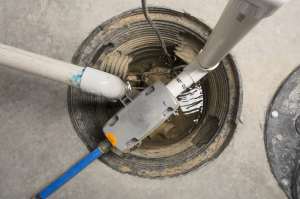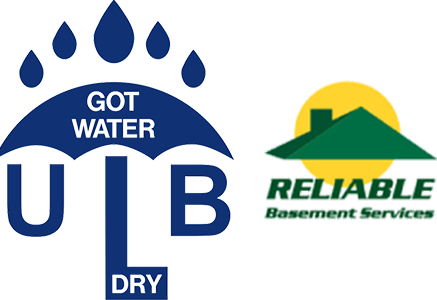There’s a lot that goes into fully waterproofing a basement. A number of different implements are needed to not only prevent water from making its way into your basement, but to quickly drain out any water that does make its way into your basement as well.
One of the most important implements associated with basement waterproofing in Des Plaines, Illinois is a sump pump. Interested in learning a little more about this device? Read on. This blog post will tell you almost everything you need to know.
What Does a Sump Pump Do?
 A sump pump is absolutely vital when it comes to eliminating water from your basement. These devices are installed within holes known as sump basins. These basins collect any water that drains in from drain tiles.
A sump pump is absolutely vital when it comes to eliminating water from your basement. These devices are installed within holes known as sump basins. These basins collect any water that drains in from drain tiles.
Sump pumps are responsible for pumping out water that collects within the sump basin. In some cases, sump pumps will pump this water out into sewers. In other cases, sump pumps will pump this water back into the soil.
Primary Sump Pump
The vast majority of homes will have two sump pumps installed: the primary sump pump and the backup sump pump. Aptly named, the primary sump pump will take on the majority of the work.
There are two different types of primary sump pumps: submersible and pedestal. Generally, the type you use will depend on the layout of your home. Nonetheless, we will describe the pros and cons of both types of sump pumps below.
Submersible
Submersible sump pumps are quite literally submerged in water. These pumps are installed deep down inside sump basins where they operate quietly all throughout the day. Durable, consistent, and reliable, they hardly ever suffer breakdowns.
The vast majority of sump pumps are submersible. This is because submersible sump pumps provide the best overall quality and functionality.
Pedestal
At one point in time, pedestal sump pumps were the most popular types of sump pumps available. While they’re not as popular as they once were, they can still be useful in some scenarios.
Generally, these types of sump pumps are used when their corresponding sump basins are not wide enough to accommodate submersible sump pumps. Their tall, narrow stature ensures that they don’t take up too much space.
Backup Sump Pump
Primary sump pumps usually run on electricity. This allows them to work consistently and reliably, until, of course, the power goes out. How can you ensure that water continuously pumps out of your basement, even after the power goes out? You can install a backup sump pump.
Backup sump pumps don’t run on electricity. They are, instead, powered by rechargeable batteries. In times of power outage, backup sump pumps jump into action, ensuring that your basement doesn’t become flooded.
Sump Pump Generators
While it might sound a little silly to you, the fact of the matter is that it’s a good idea to have a backup for your backup sump pump. While backup sump pumps will certainly perform well in the absence of primary sump pumps, they will only do so until their batteries run out of power.
A sump pump generator ensures that your backup sump pump will run for as long as said generator is filled with fuel.
Utilize Professional Sump Pump Installation in Des Plaines, Illinois
Are you looking to waterproof your basement? Interested in utilizing professional sump pump installation in Des Plaines, Illinois? If so, we here at ULB-DRY Waterproofing are the company to see.
With over 25 years of experience on our side, we’ve installed sump pumps in a variety of basements throughout the Des Plaines area. We would be happy to install yours as well.
Contact us today to get started!





